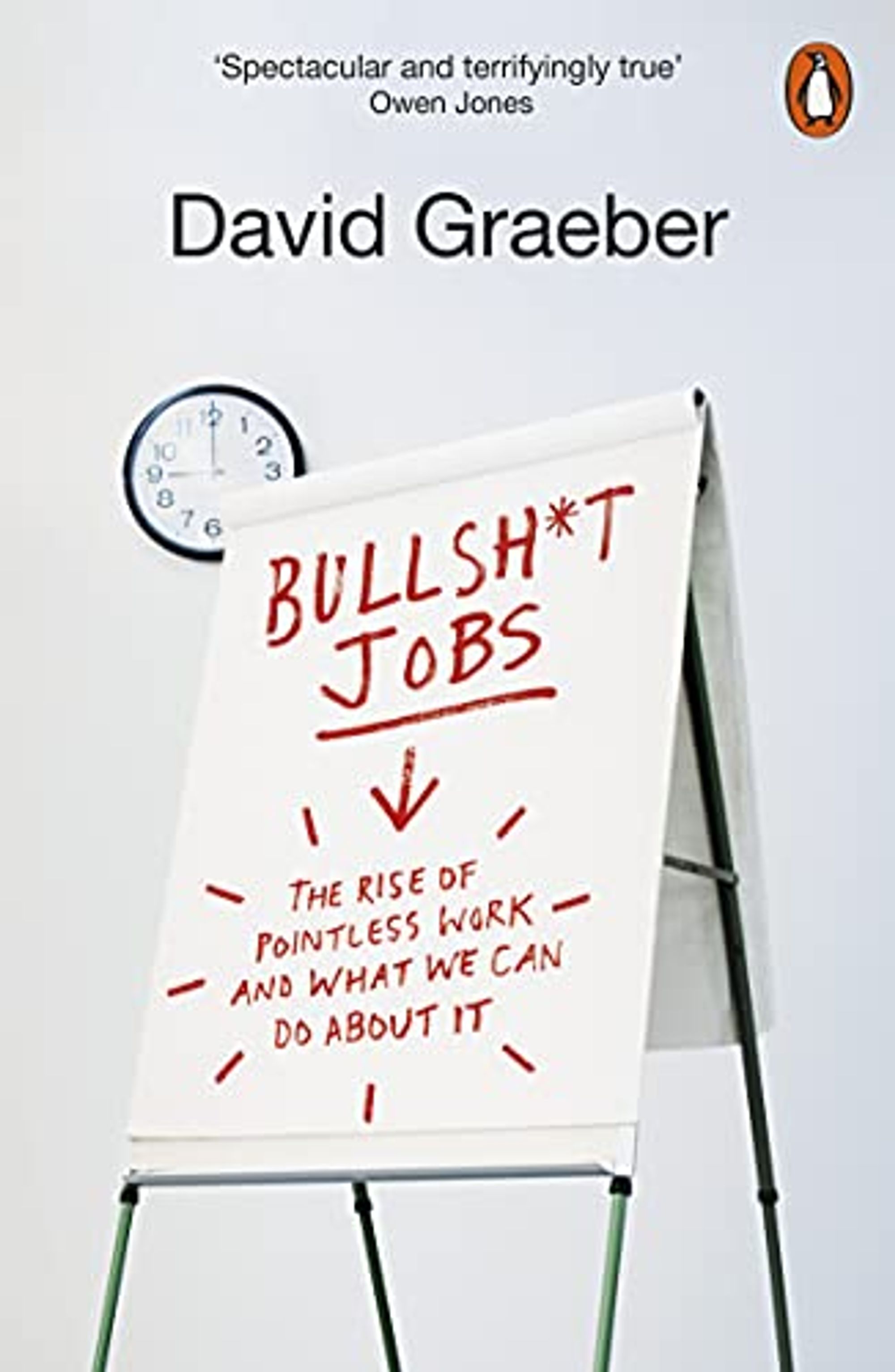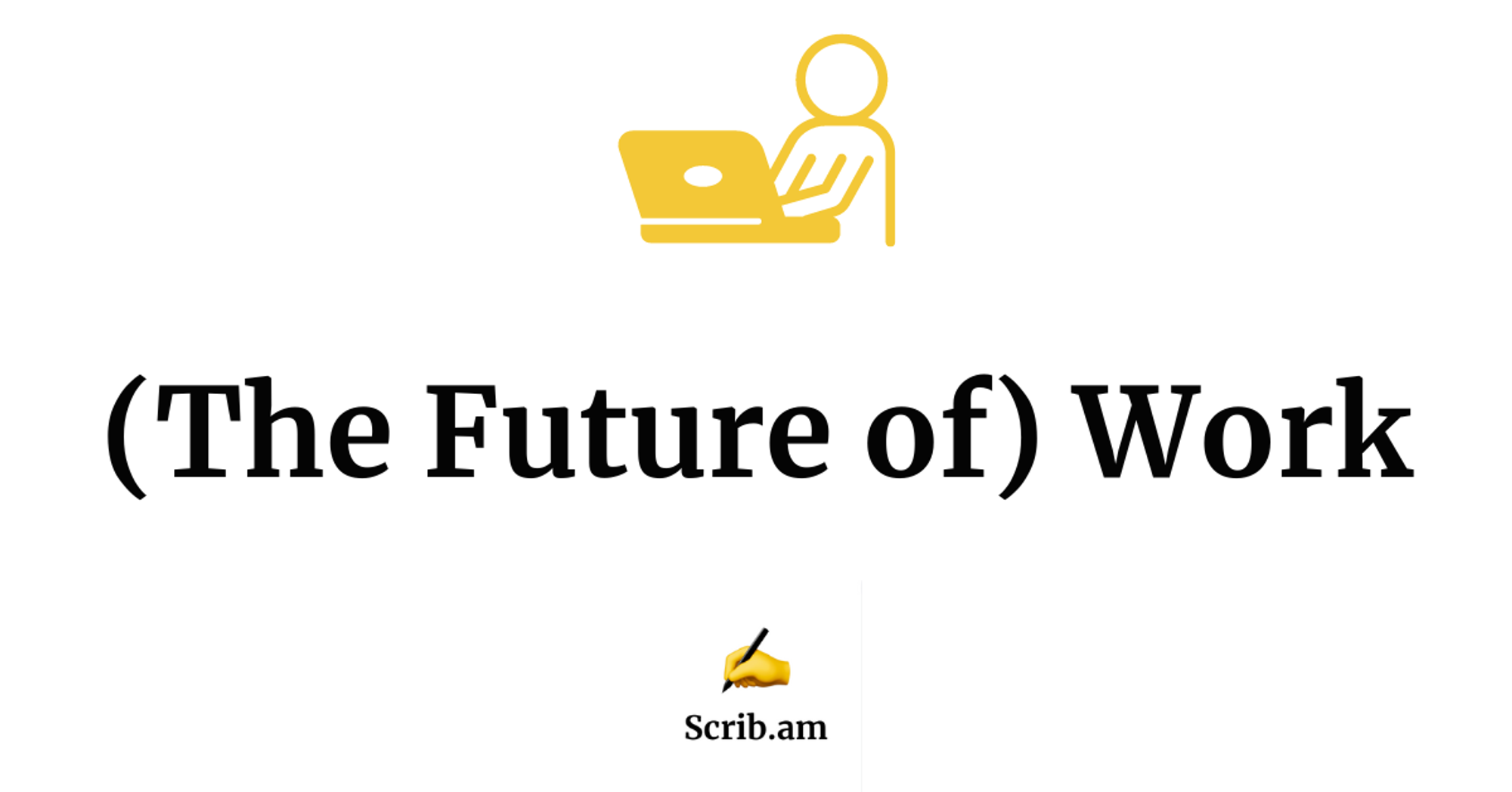The impact of AI
With the rapid progress of AI, the Future of Work is becoming a very intense debate.
Some intellectuals argue that widespread AI usage is just another revolution, that lost jobs will be replaced by new ones, as they were when we transitioned from manual to mechanized work in the mid-19th century, or from horses to motorized vehicles in the early 20th century.
Others consider that this revolution won’t be the same, that there could be an absolute contraction in the amount of jobs available to the public, which would pose huge societal challenges.
Here’s some data from a recent study (2018) by PwC
- 37% are worried about automation putting jobs at risk - up from 33% in 2014
- 74% are ready to learn new skills or re-train to remain employable in the future
- 60% think 'few people will have stable, long-term employment in the future
People are clearly aware of the challenge ahead of us.
In his talk at Google HQ titled “Life 3.0., Being Human In The Age Of AI”, Swedish-American physicist Max Tegmark points out the challenging similarity between the previous revolutions and the disruption which will likely be caused by increased automation.
Looking at the 149 million US jobs in 2015, he found out that there were very few jobs in 2015 which did not exist 100 years ago (Software Developers appeared at #21 in his leaderboard).
What happened is that people active in jobs where they used their muscles to do work moved into jobs where they could use their brains to do work. And these jobs tended to be better paid, which was a net win. But they were jobs that already existed before. What’s happening today is similarly that people are getting switched into other jobs that had existed before. But this time, since the jobs that are automated away are largely jobs where they’ll use their brains, they often switch to new jobs that existed before that pay less.
That’s a big challenge: automating well paid brain work while inviting people to revisit manual work isn’t an easy ask. We might have to explore another option.
The Age of Abundance
Some authors consider that we’ve already entered an age of abundance but it’s clear that most of us still need to work for a living and that wealth is not evenly distributed, quite the contrary.
This being said, most intellectuals agree on the fact that work automation and other technological advances could facilitate a drastic decrease in the cost of goods and services, down to a point when some commodities could become (almost) free.
- Driverless buses (and cheaper energy) could reduce the cost of public transport
- 3D printing could enable us to produce food, medicines or spare parts based on downloadable recipes and templates.
- AR & VR could reduce the need of travel to attend training sessions or organize meetings. That’s one of the ambitions of the Metaverse.
- AI Knowledge Workers could replace copywriters, accountants, lawyers, marketers and many other professions. Interestingly, the workers which thought they were protected by their (very repetitive) cognitive skills could be the first to be made redundant since they’re easy to replace with computational models.
- Solar Energy is our best bet in the field of renewables to move into a post-fossile era. Ultimately, we’ll become a Type II Civilization if we manage to fully harness its power.
If we can’t re-employ knowledge workers previously occupied in mundane intellectual tasks, what can we offer them?
Is a labor-free world a possibility?
I encourage you to listen to this great episode of The Ted Interview feat. Aaron Bastani, author of Fully Automated Luxury Communism.
Do we actually have to work?
You would expect most people to say that they’d rather take home some free cash than having to commute to a boring job.
But do they really want to quit?
The late David Graeber wrote a thought-provoking book on the topic of Bullshit Jobs.

An awful lot of people are employed in “utterly meaningless or even counterproductive activities”.
So it might not be a bad thing if AI could help us develop a more effective society.
It means that the legions of workers made redundant in the process would have to find a new - ideally more meaningful - way to occupy their time.
Enter the idea of a UBI (Universal Basic Income). Governments could allocate a budget for sport, culture and other hobbies, sourced from the cost-effective value added coming from automation (a “tax on robots”).
But do all people really want to engage in independent meaningful activities?
That might sound like a stupid question but it’s not.
You can’t expect everyone to self-manage their to do list.
A lot of people rely on some form of authority to fill out their calendar.
In theory, they’d love to be free but in practice they can’t cope with absolute freedom.
On the other hand - almost in defense of Bullshit Jobs - it could be argued that it’s not the job that matters but the interactions with colleagues.
A lot of workers don’t crave for enlightenment or a supreme kind of purpose, they’re just looking for social interactions and work is a pretext for meeting other human beings while earning a living.

We saw the impact of the pandemic on mental health when all of a sudden most knowledge workers were deprived of in-person connections, forced into Zoombification.
What would we do if we didn’t have to work?
Idealists would expect people to maximize the use of their cognitive skills, feeding their curiosity with an endless stream of knowledge and experiences.
But a lot of people would rather spend a jolly good time with family and friends (and past colleagues), without any specific purpose or ambition.
Social relationships would be good enough to make them happy.
Should we advocate Boredom? That’s the proposal outlined in the manifesto of The Boredom Society. The authors are talking about good boredom as opposed to the toxic boredom induced by bullshit jobs and other meaningless activities.
Should we accept idleness or at least purpose-free leisure as the new normal in a post-job era?
Would it be sustainable? How would it impact our collective evolution?
The other side of the coin
Let’s face it: it’s very difficult to engineer eudaemonia (project-based happiness) in a world dominated by hedonistic triggers, resulting in fleeting dopamine rushes.
Even the term “Creator Economy”, all the rage these days, is somehow exaggerated.
A lot of Instagram, Tik Tok and OnlyFans “creators” don’t create much, besides an endless feed of photoshopped smiles and suggestive body poses.

Bullshit-driven toxic boredom and anxiety don’t give birth to the type of creativity you’d associate with art or other deep intellectual pursuits.
When people seek instant gratification, it’s usually a form of escapism, both from the grind of their bullshit jobs and from the fate that awaits us all.
We need to find ways to encourage people to lower their time preference (my tip: start your own personal encyclopedia).
If we could instill some more Meaning IN Life (which cognitive scientist John Vervaeke distinguishes from The Meaning OF Life), it might spark a renewed interest for long-term / cathedral thinking, which in turn would incentivize people to invest time and energy into personal projects.
True idleness (as defined by Jean Jacques Rousseau) would still be a valid time allocation but it would be balanced with some form of creative occupation, beneficial both for the individual and society as a whole, Utilitarianism 3.0.
Utilitarianism is a theory of morality that advocates actions that foster happiness or pleasure and oppose actions that cause unhappiness or harm. When directed toward making social, economic, or political decisions, a utilitarian philosophy would aim for the betterment of society as a whole (https://www.investopedia.com/terms/u/utilitarianism.asp)
Modern civilization has created a set of self-imposed constraints which make it very difficult to aspire to a full return to nature, as eloquently described by J.J. Rousseau in his Discourse on Inequality (1755).
The savage and the civilised man differ so much in the bottom of their hearts and in their inclinations, that what constitutes the supreme happiness of one would reduce the other to despair. The former breathes only peace and liberty; he desires only to live and be free from labour; even the ataraxia of the Stoic falls far short of his profound indifference to every other object. Civilised man, on the other hand, is always moving, sweating, toiling and racking his brains to find still more laborious occupations: he goes on in drudgery to his last moment, and even seeks death to put himself in a position to live, or renounces life to acquire immortality. He pays his court to men in power, whom he hates, and to the wealthy, whom he despises; he stops at nothing to have the honour of serving them; he is not ashamed to value himself on his own meanness and their protection; and, proud of his slavery, he speaks with disdain of those, who have not the honour of sharing it. What a sight would the perplexing and envied labours of a European minister of State present to the eyes of a Caribbean!
To be continued…
Sources
The Age of Abundance https://amzn.to/3Rq3wCe
Bullshit Jobs https://amzn.to/3KStKec
